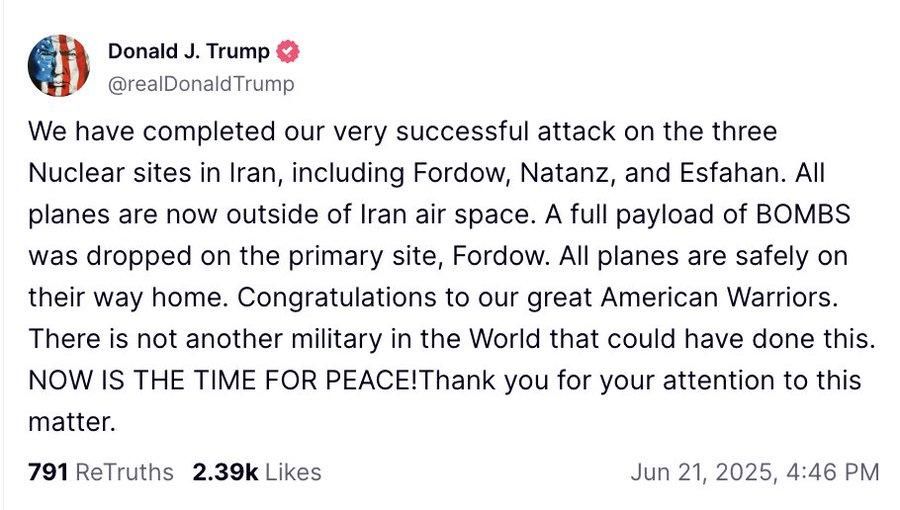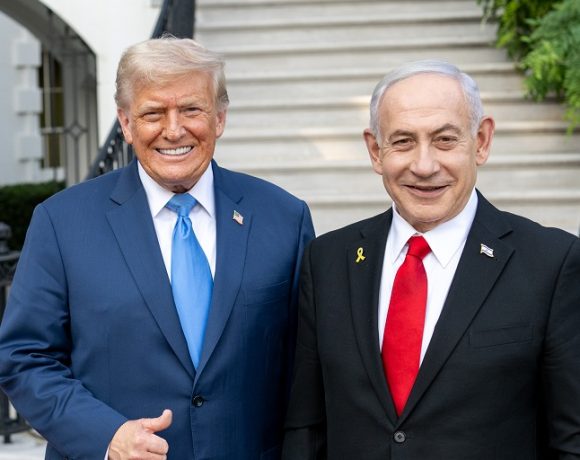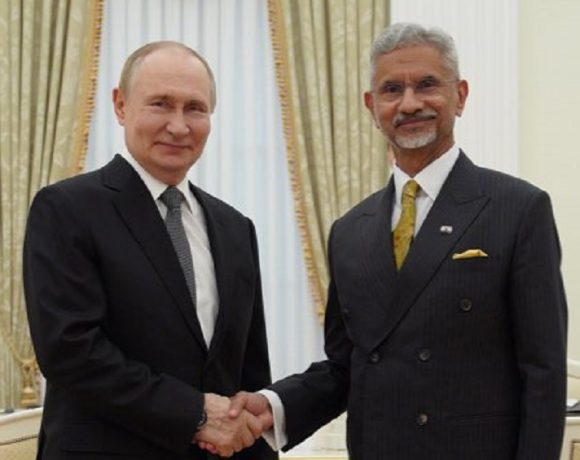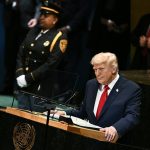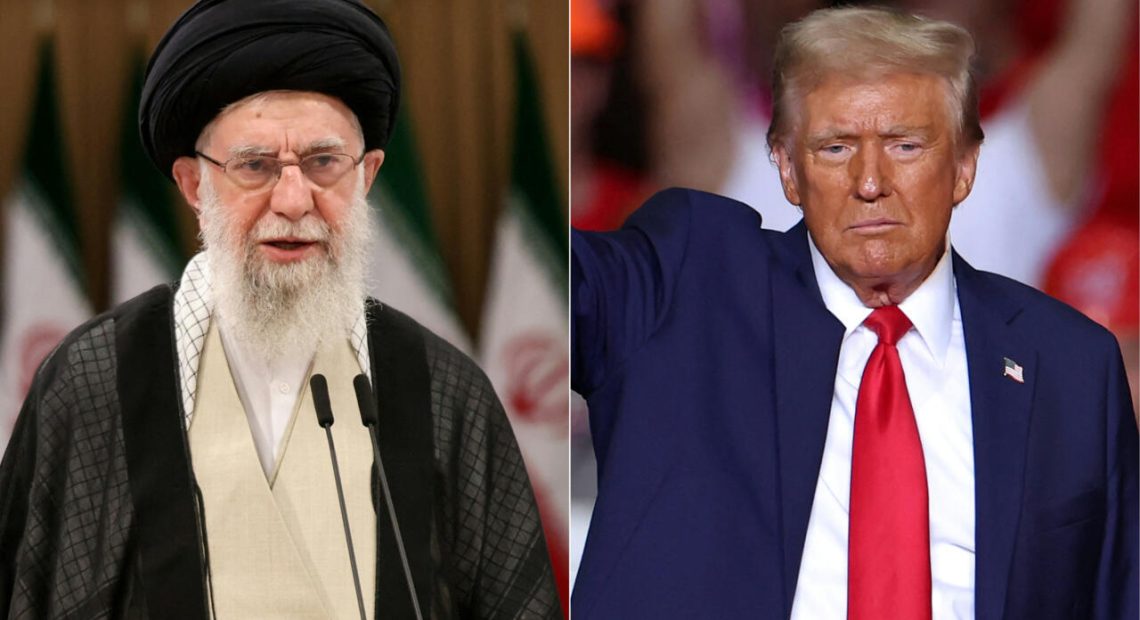
Trump Confirms U.S. Strikes on Iran’s Nuclear Facilities
U.S. President Donald Trump has confirmed that American forces conducted coordinated airstrikes on three critical Iranian nuclear sites—Fordow, Natanz, and Isfahan—marking the first overt U.S. military engagement in the ongoing Iran–Israel conflict. In a statement released early Saturday, Trump described the operations as “very successful” and confirmed that all U.S. aircraft involved had safely exited Iranian airspace.
The announcement comes just hours after intense speculation surrounding the movement of B‑2 stealth bombers and aerial refueling tankers across the Indo-Pacific and Middle Eastern corridors. According to sources familiar with operational planning, the strikes focused on disabling underground uranium enrichment facilities and command infrastructure.
Trump’s statement read, “We have just completed precision strikes on Iranian nuclear sites at Fordow, Natanz, and Isfahan. The mission was executed flawlessly. All our pilots and aircraft are now safely out of Iranian airspace.” He stopped short of declaring any further military escalation but warned Iran against retaliatory actions.
The targets include some of the most fortified sites in Iran’s nuclear infrastructure. Natanz and Fordow are widely known for their centrifuge installations, with Fordow housed deep beneath mountains to resist aerial assault. Isfahan serves as a conversion facility and research complex, playing a key role in uranium processing.
Initial reports suggest significant damage, but Iran has yet to issue a formal response beyond condemning the attacks. Tehran has called for an emergency meeting of the UN Security Council and warned of “strategic consequences” if Iranian sovereignty is further violated.
The strikes came after Geneva-based talks on de-escalation failed and amid growing regional instability. Earlier this week, Israel struck Iranian military and nuclear sites, prompting limited Iranian retaliation. Trump’s decision to intervene directly marks a sharp escalation, pushing the region closer to a broader conflict.
White House and Pentagon officials maintain that the operation was preemptive, aimed at neutralising “imminent threats” to U.S. forces and allies. U.S. National Security Council members were reportedly on alert throughout the night, and additional deployments to the CENTCOM region are under consideration.
As of now, global markets are reacting cautiously, with oil prices spiking and diplomatic channels between key world powers now shifting focus to emergency crisis response. World leaders have urged restraint, while the UN and EU prepare to convene extraordinary sessions.
